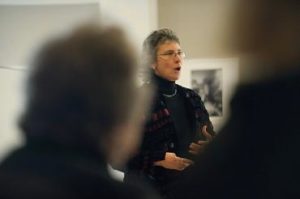San Francisco Chronicle
January 10, 2012
Written By Nanette Asimov

Over the objections of angry college students and worried faculty members, California community college leaders voted Monday to support a systemwide overhaul that could end many free classes for older adults and squeeze out students who fail to move quickly through the system.
The 22 recommendations approved by the college system’s Board of Governors are intended to address a devilish problem: Essential classes are in critically short supply and thousands of students are turned away from classes they need because of the state’s economic crisis.
Board member Peter MacDougall, chairman of the Student Success Task Force that drew up the recommendations over the last year, said colleges can no longer afford to put out the welcome mat they have offered for generations.
“As wonderful as having open admission is, if it’s a false promise, it fails,” he said.
Under the new plan, all students will be expected to set up an education plan to move quickly toward an associate’s degree or vocational certificate. If they linger too long or take too many classes unrelated to their goal, they lose registration priority. Others poor enough to quality for a fee waiver would lose that benefit after 110 credits, well beyond the 60 credits needed to transfer.
These changes, including a shift in key decision-making from the 112 campuses to the state chancellor’s office, won’t be automatic. Legislation is required for several of the proposals.
But Monday’s vote, unanimous with two abstentions, was a significant step toward implementing them.
“This is the most significant issue that’s come before the board,” said Board of Governors President Scott Himmelstein.
Supporters include the Community College League of California and other groups that say the recommendations will focus more attention on students who fall through the cracks.
Scott Lay, president of the league, said it was “unconscionable” that higher education has been cut $2 billion this fiscal year. “But it’s more unconscionable that we have a 20-point achievement gap between white and black students. We cannot ignore this any longer,” he said.
Dozens of opponents addressed the board, fearful that students who don’t fall within the scope of the recommendations will be shut out.
Many said that 110 credits isn’t enough time for some students, especially those who have had troubled childhoods, are single parents or former offenders.
“These recommendations are discriminatory,” said Paul Munoz, who works with needy students at Ventura Community College.
Ed Murray, an instructor at City College of San Francisco, where many opponents were from, urged the board to oppose the recommendations.
“Don’t cut out the poorest of our society. Where are they going to go if they can’t go to community college? To prison?” Murray asked.
Several of the speakers oversee programs for older adults, which offer free classes from memoir writing to music appreciation.
The recommendations direct colleges to spend their dollars first on students with academic or vocational goals. Only then should scarce resources be spent on free enrichment classes.
Chancellor Jack Scott told the audience that he has nothing against older adults. “I happen to be one of them,” said the white-haired former state senator.
Scott also addressed those who criticized the rationing of education, an expression he has used himself.
“We’re already rationing education,” he said. “We’re just doing it haphazardly.”
Abstaining from the vote were board member Natalie Berg, also a City College of San Francisco trustee, and Danny Hawkins.
As the board members voted, students stood, interrupting with “Mike check!” the Occupy movement’s signature statement. They paused only long enough to allow the board to finish voting, then shouted:
“We’ll be back! We shut down the Port of Oakland – twice – and we’re coming for you!”
